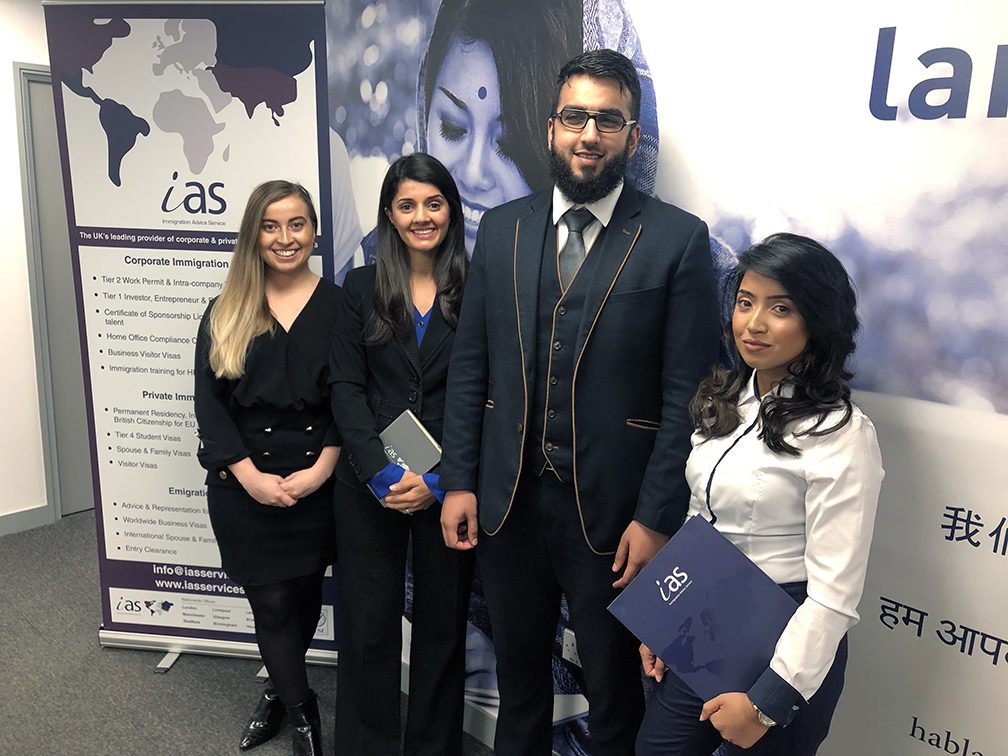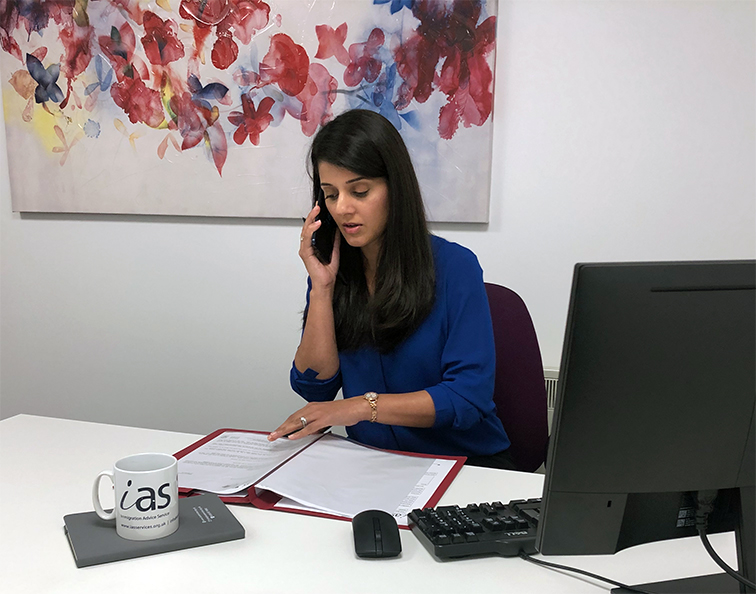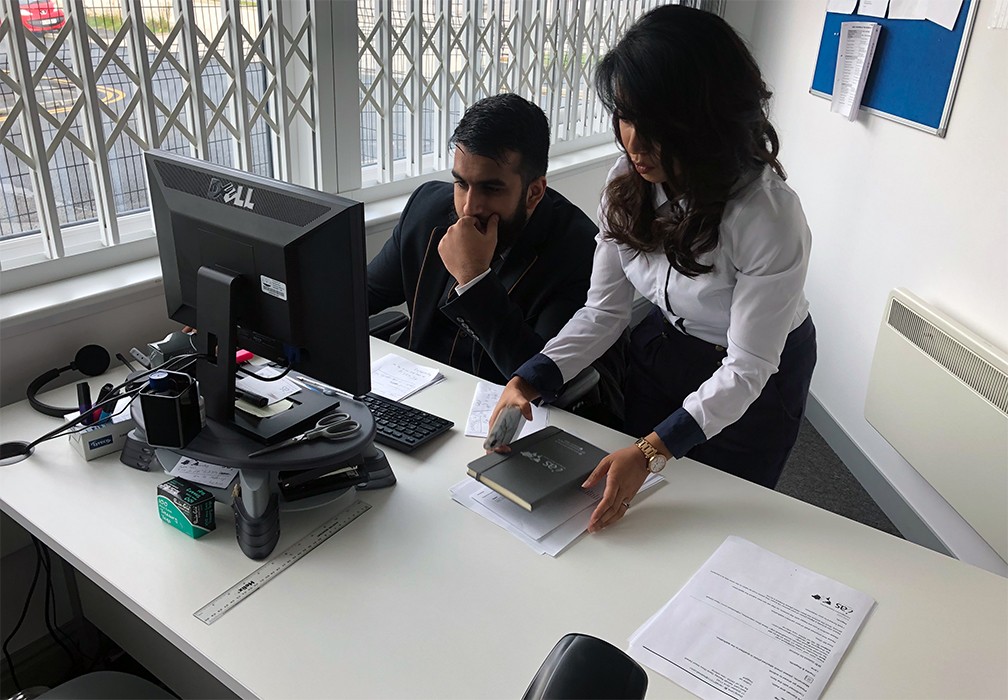How To Hire Foreign Chefs To Work In France
France is undoubtedly the gastronomic capital of the world with people travelling from all over to sample its many cuisines. However, with chefs and food professionals now being so well spread internationally, many businesses need to hire from further afield to attract talent into France – and here we explain how best to do just that.
Total Law can help businesses hire talent from all over the world, offering guidance and support through all relevant visa applications and appeals. Call our team now on +44 (0)333 305 9375 to discuss your target hires.
How To Hire Chefs From Abroad To Come To France For Work
There is no specific chef visa France offers, but rather a range of work permit solutions that provide the necessary formal permission for chefs and other professionals to reside and work in the country legally.
If the French employer is an international branch of a business for whom the chef is already employed, an intra-group transfer permit can be applied for:; either short-term or long-term depending on the business’ requirements.
If the French employer is currently unrelated professionally to the foreign employee but wishes to hire them, a French work visa or permit must be applied for and granted. In this instances, an employment contract must have been created ahead of the application and a job offer made to the individual.
Navigating French visa types and the application process can be difficult for the host company – and it is the employer and not the employee expected to complete the process. Total Law are a team of specialist immigration lawyers who can help and have successfully helped numerous businesses hire their top teams internationally. Call us today on +44 (0)333 305 9375 to learn more!
What Visa Do Foreign Chefs Need To Come To France?
There are three different visa types most appropriate for hospitality businesses looking to hire foreign employees. These are as follows:
Short-term work permit – for assignments up to 90 days in length where a fixed-term contract is in place
Long-term work permit – for assignments of over 90 days in length where an employment contract is in place
A ‘talent passport’ (‘passeport talent’) – where the individual is considered to be extremely highly qualified and will be paid a salary of over €54,000. This is sometimes the case where the chef’s area of expertise is highly specialised.
In all instances, the French employer must be able to provide evidence that they have been unable to hire someone as qualified for their role vacancy from within France, the European Union, Switzerland, Norway, Iceland or Liechtenstein.

France Chef Work Permit Requirements
The requirements that must be met to apply for a work permit depend on the type of visa the application is being made for. In all cases, the employee may make the application but to do so they must be granted power of attorney over the process by their future employer. It is therefore always recommended that the employer lead the charge on such processing.
Short-term and long-term work permits
Where the intended employee will work on a fixed-term contract or a work assignment lasting less than 90 days in the country, only a short-term French work permit is required. Where the contract or work assignment is intended to last longer than 90 days, a long-term French work permit is required.
To qualify for both, the employer must:
- Have issued a fixed-term employment contract to the employee and had it signed by them
- Have had the employee complete a labour market test if their role isn’t on the national skills shortage list for the employer’s local area (chef vacancies are not listed in every region of the country and so the employer must check ahead of application).
The immigration authorities will request documents from the prospective new hire, and this will usually include:
- A valid passport
- An up-to-date CV
- Copies of relevant qualification certificates (professional and/or academic, as related to the role)
- A copy of the signed employment contract.
From the business itself, the immigration authorities will likely request the following documents:
- Confirmation from the French employment authority that the job was advertised for a period of at least 4 weeks externally to the company
- Proof that the employer was unable to fill the role vacancy from the French labour market
- Corporate registration certificates (Kbis)
- Proof of French social security payments (Urssaf).

‘Passeport talent’
There are three classes of the ‘passeport talent’ which can apply for chefs or those working in hospitality. These are:
- ‘Working on assignment’ (where the individual already works for the company but needs to move to France to work on a specific project for at least 90 days)
- ‘Qualified employee’ (where the individual has an employment contract valid for at least 90 days and holds a Masters’ Degree or equivalent from a French educational establishment)
- ‘Employee of a young innovative company’ (where the individual will be working for a company who is recognised as an innovative firm and has received public state support as such).
The immigration authorities will request documents from the prospective new hire, and this will usually include:
- A valid passport
- A copy of a valid birth certificate
- A completed permit application form signed by the prospective employer
- An up-to-date CV
- Copies of relevant qualification certificates (professional and/or academic, as related to the role)
- (For ‘qualified employee’) University transcripts
- A copy of the signed employment contract
- Employment confirmation letters from previous employers.
From the business itself, the immigration authorities will likely request the following documents:
- Corporate registration certificates (Kbis)
- Proof of French social security payments (Urssaf)
- (For ‘working on assignment’) Organisational charts showing the relationship between the French branch of the company and others internationally
- (For ‘innovative company’) Proof of public support for innovation received in the last five years or proof that some of its capital is currently held in a privately held entity or investment fund specifically for innovation purposes.
Intra-group transfer permit
If the employer already technically hires the individual but under another branch of the company overseas, they may apply for an intra-group transfer permit.
The immigration authorities will request documents from the prospective new hire, and this will usually include:
- A valid passport
- An up-to-date CV
- Copies of relevant qualification certificates (professional and/or academic, as related to the role)
- A copy of the signed employment contract currently in place with the overseas employer
- A letter from the overseas employer detailing the project to be completed in France.
From the business itself, the immigration authorities will likely request the following documents:
- Organisational charts showing the relationship between the overseas employer and the French branch
- Corporate registration certificates (Kbis)
- A valid social security certificate
- Proof of French social security payments (Urssaf).
The Steps To Bringing Foreign Chefs In France
In most cases, the responsibility for a work visa application lies with the French company as they are best placed to deal with the relevant French authorities. However, the process varies dependent on the visa being applied for and with all applications judged on a case-by-case basis, it’s usually recommended that employers seek specialist guidance to navigate it. Total Law are on-hand to do this and are available for free, no-obligation discussions on +44 (0)333 305 9375.
For short-term visas, the French company must first apply online for the work permit and then submit a secondment declaration on SIPSI’s online system. For long-term visas, the French company must apply online for the work permit and will then be guided through a bespoke process by the appropriate Consulate or Embassy for the employees’ home country.
For the majority of short-term permit applications, the visa application form can be completed online with everything processed virtually. However, for long-term permit applications, while the visa application form can be completed digitally, in-person interviews with a representative of the French company are often required at a local Consulate, Embassy or office of the relevant French authorities. At such appointments, a company representative may be expected to present additional information on employment contracts, supporting documents and evidence on the private individual to justify their hire.
For a talent passport, the work permit and long stay visa application must be completed at a Consulate, Embassy or appropriate visa centre at a pre-booked appointment. If the job role to be completed is intended to last for 12 months or less, the individual’s visa will need validating online.
In all cases, if the employer is successful in securing a work visa for the prospective employee and they intend to stay in France for a period of 12 months or more, they must apply for a residence permit. This must be done in person at a pre-booked appointment at the local prefecture (police HQ).
Different prefectures and different country’s embassies have varying procedures and timeframes for processing visa applications and so this should be checked ahead of time.

Total Law’s Lawyers Can Help Your Business
Total Law are a firm of leading immigration lawyers and can navigate even the most complex of international immigration cases. Working with employers to hire the best possible talent from all over the world, our expert staff help navigate the visa application process from start to finish.
Working on applications and appeals, we ensure that all relevant documentation is presented and all processes completed correctly. We understand how difficult it can be to prove the expertise of hospitality staff in particular but appreciate the importance of their craft – so let us work with you to hire the perfect team.
Call the Total Law team today on +44 (0)333 305 9375 to discuss your corporate immigration and overseas hiring needs.
Advice Package
Comprehensive immigration advice tailored to your circumstances and goals.
Application Package
Designed to make your visa application as smooth and stress-free as possible.
Fast Track Package
Premium application service that ensures your visa application is submitted to meet your deadline.
Appeal Package
Ensure you have the greatest chance of a successful appeal. We will represent you in any case.

The Advice Package
During this untimed Advice Session with our professional immigration lawyers in London, you will receive our comprehensive advice, completely tailored to your needs and your situation.

The Application Package
With our Application Package, your dedicated immigration lawyer will advise you on your application process and eligibility. Your caseworker will then complete and submit your forms to the Home Office on your behalf.

The Fast Track Package
Our Fast-Track Application Package is a premium service for those who need to submit their application in time with their deadlines. Your case will become a top priority for our lawyers and you will benefit from our highest-quality services.

The Appeal Package
By choosing our Appeal Package, you can rely on our lawyers’ legal knowledge and experience to ensure you have the highest chance of a successful appeal. We will also fully represent you in any hearings/tribunals.
Related pages for your continued reading.
Frequently Asked Questions
The processing time for French work permits vary, with every application processed on a case-by-case basis. On average, it takes 6-8 weeks to obtain an intra-group transfer permit, 8-16 weeks to obtain a short-term work permit and 4-8 weeks to obtain a long-term work permit or talent passport.
Chefs are only eligible for a French work permit if their prospective employer is able to prove that they are not able to hire an equivalent talent to work in their role from the European Union, European Economic Area, or Switzerland.
There is the facility for those working in France to bring their immediate family to reside with them in the country under family reunification laws, but there is set entry requirements in place and the French authorities must sign off their applications separately.

